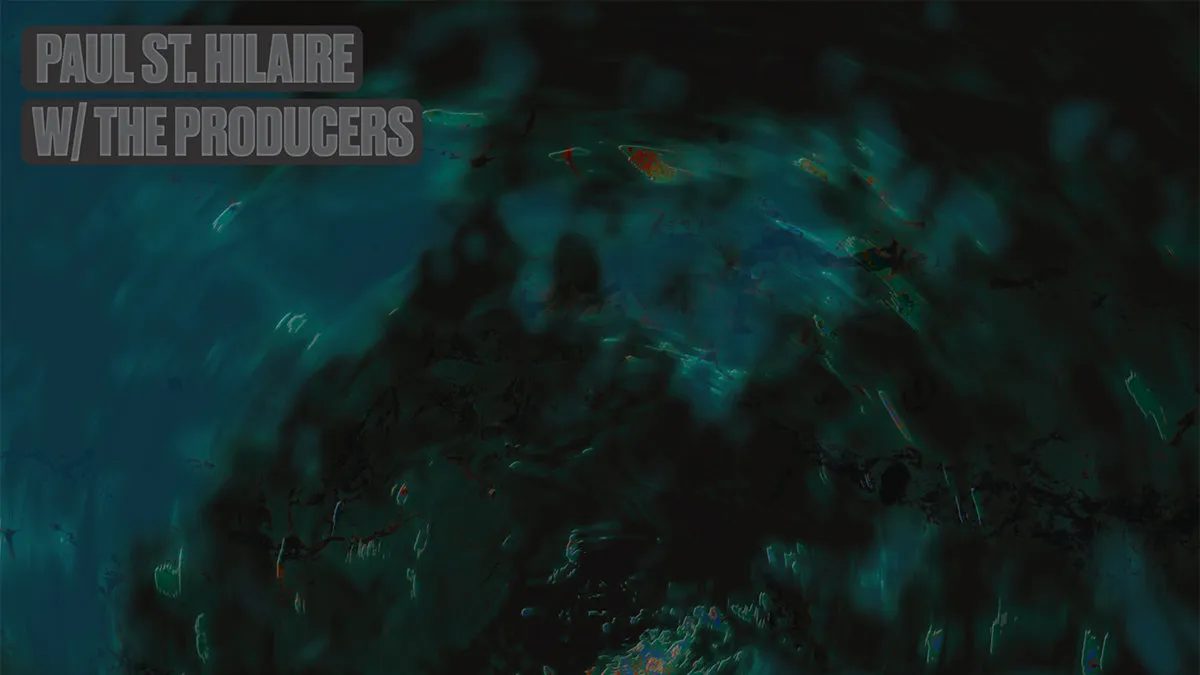
Sooner or later, everyone who loves dub techno becomes acquainted with the gossamer tenor of Paul St. Hilaire. His voice gets stretched and pulled across so many of the greatest records in the genre, from his early collabs with Basic Channel’s Mark Ernestus and Moritz von Oswald to his rousing appearance on Intrusion’s late-period benchmark The Seduction of Silence in 2009. As befits a style whose exponents obscure themselves behind stark record sleeves and inscrutable aliases, the artist formerly known as Tikiman—born on the Caribbean island of Dominica but based in Berlin—has been modest about his importance. “I prefer to say a little ting and stay out of the light,” he told Resident Advisor’s Richard Akingbehin in a 2021 feature, but since striking up a friendship with Akingbehin and signing with his Kynant label, he’s been taking his pioneering status more seriously.
In 2023, Tikiman Vol. 1 focused on St. Hilaire’s production chops and proved he could kick up clouds of interstellar dust as vast as anyone he guested with. The artist’s second album for Kynant, w/ the Producers, flips the formula and pairs his voice with some of the most inventive artists at the crossroads of electronic dance music and dub, from dubstep vet Mala to dancehall deconstructionist Gavsborg, of Equiknoxx, to Tunisian-French fusionist Azu Tiwaline. Though both members of Basic Channel are still releasing inspired music, they’re pointedly absent from the credits; the only ambassador of dub techno’s first wave is the great Japanese producer Shinichi Atobe, who feeds St. Hilaire’s vocals into a ghostly gauntlet of vocoders on “Time to Wake Up.”
Though the eclectic roster of collaborators makes for a rockier listen than Tikiman Vol. 1, St. Hilaire still zeroes in on a specific feeling, as much death disco as dub techno; this is roiling, subterranean music, and Mala sets the tone on “Like It’s Always Been” with a rusted beat that moves like a wounded robot trying to stagger back to its feet. “What’s This,” with Bay Area producer Russell E.L. Butler, uses irregular bursts of static to evoke long, paranoid nights spent watching the worsening evening news on TV. Most impressive is Priori’s contribution to “Send Them On,” which starts out as a clone of St. Hilaire’s Rhythm & Sound collaboration “Jah Rule” but turns into something much scarier once the drums pick up the tempo and the chords bleed into purple bruise tones.
The title is a flip of w/ the artists, the epochal 2003 album by Ernestus and von Oswald’s post-Basic Channel project Rhythm & Sound, which paired the production duo with St. Hilaire and a roster of other singers and deejays of Caribbean descent. It’s still one of the most effective dub techno releases to shift the emphasis toward the former descriptor, but the title suggested that the two Germans behind the project felt sheepish about their central role in a genre so strongly informed by Black production styles. The story of dub techno most often told is still one of white producers and Black singers, but if w/ the Producers doesn’t challenge this narrative as pointedly as Tikiman Vol. 1, the consistency of the vision here makes it clear the singer is calling the shots. “The train is high,” he sings on “Back Inna Business” with Cousin. It sounds a little like “the train is I.”



